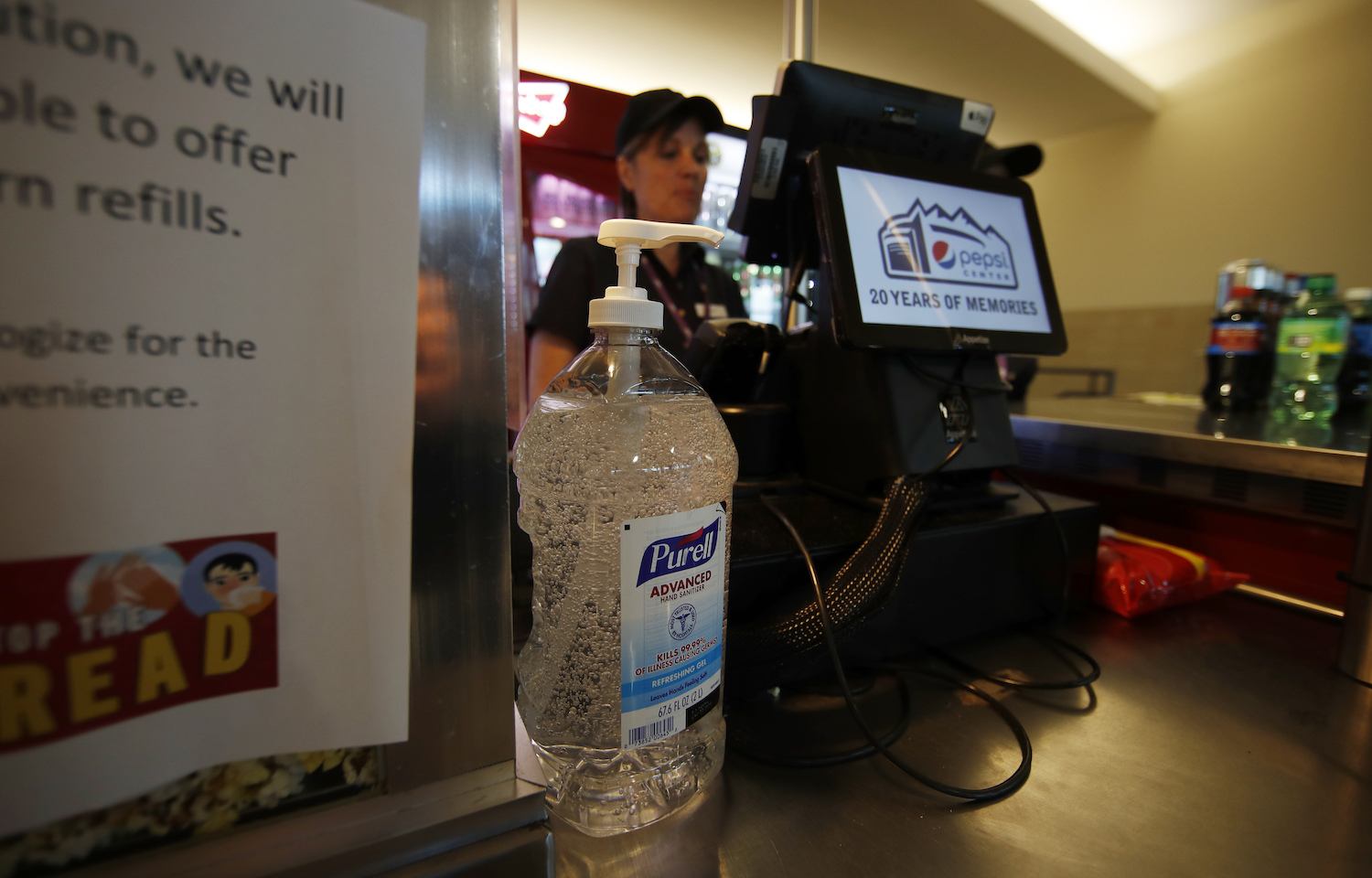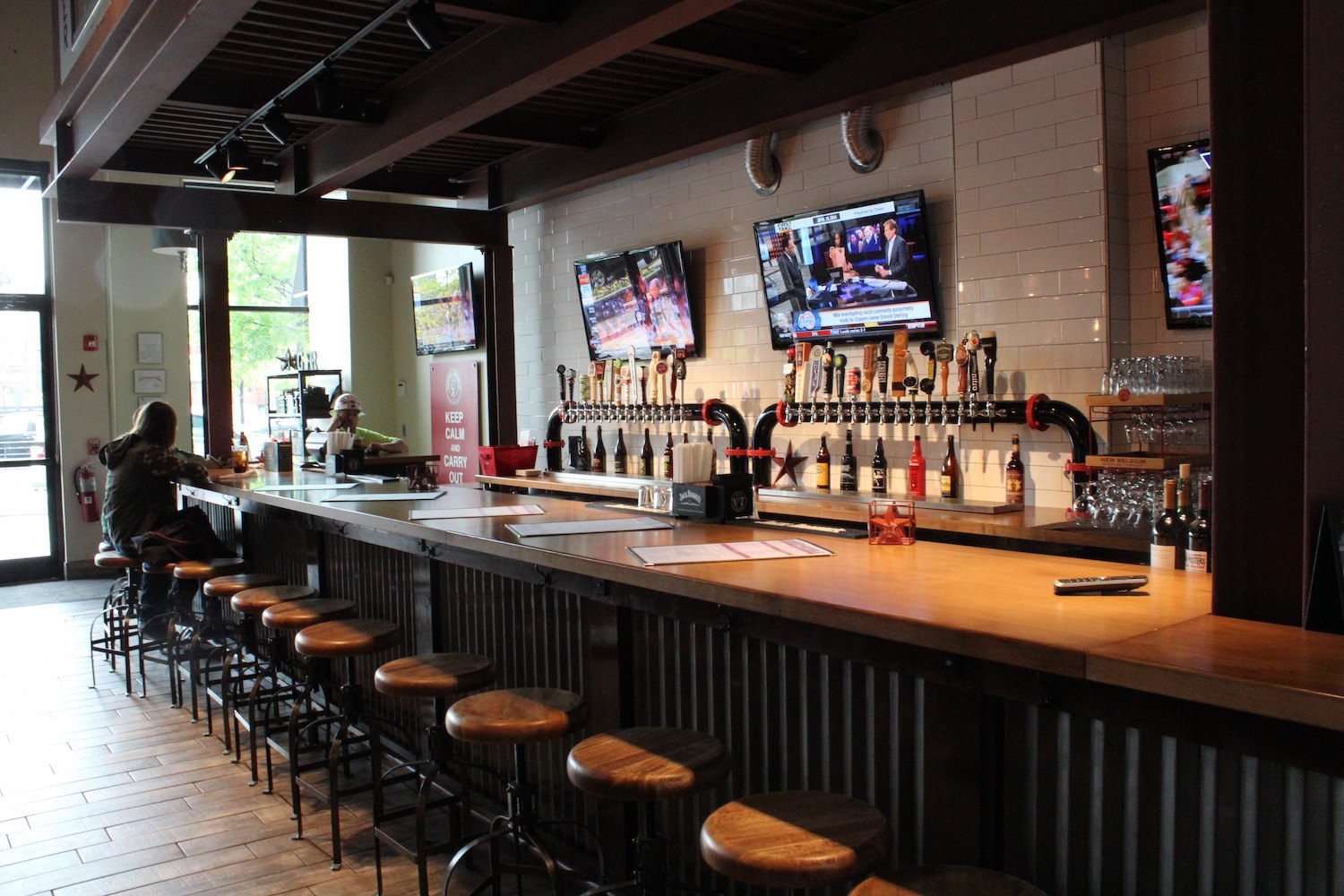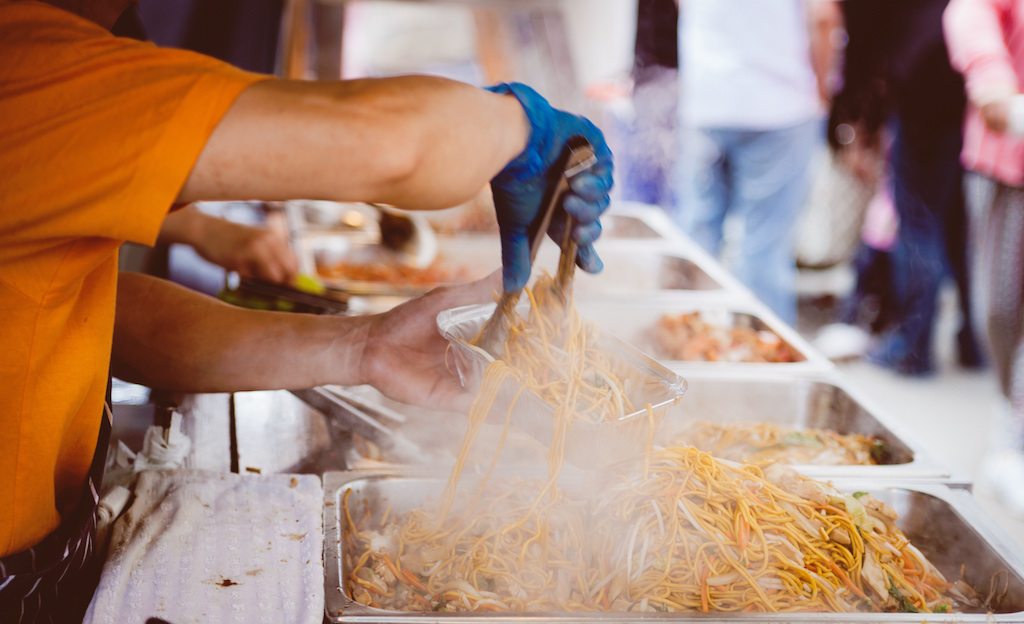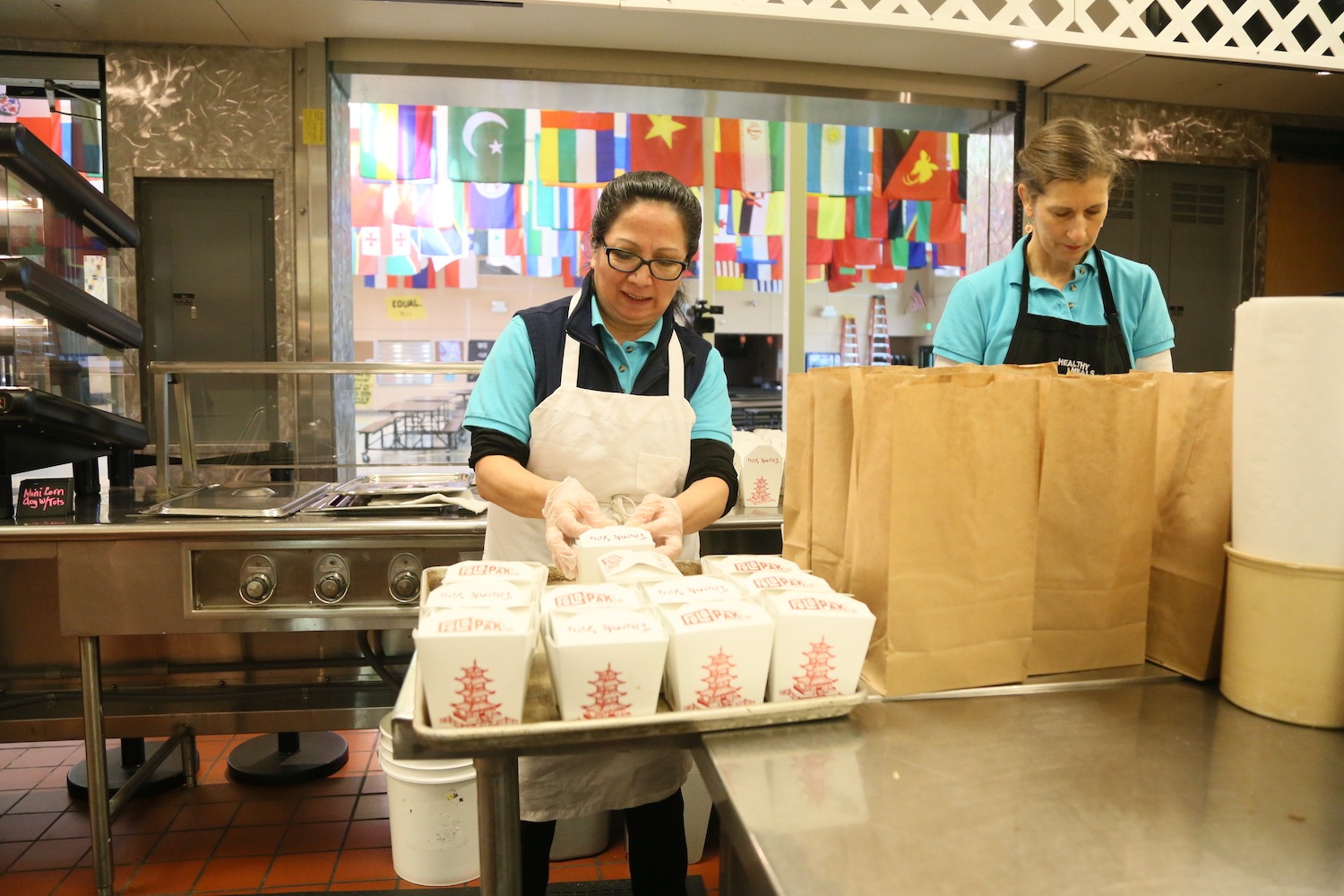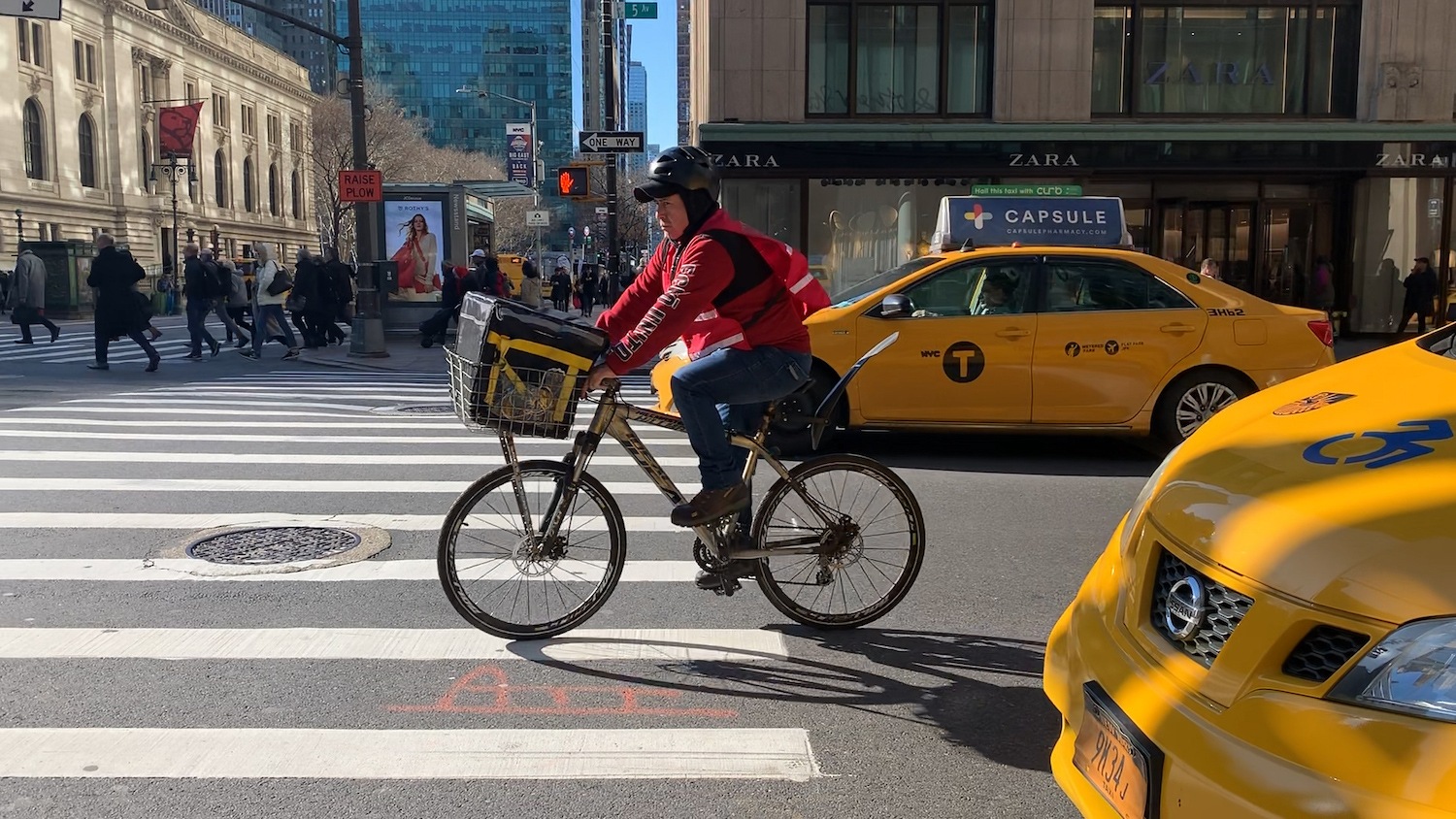“The short answer is, nobody knows. That’s why all sorts of things are happening.”
When Dr. Ben Chapman hosts a food safety webinar for restaurant owners and industry professionals in normal times, it typically draws 50 to 100 viewers.
But this week, when the food safety specialist and professor at North Carolina State University participated in a coronavirus preparedness webinar hosted by the National Restaurant Association, 12,000 people registered.
“It’s by far the biggest thing I’ve ever been a part of,” he said.
After Chapman spoke, questions continued to roll in by the hundreds. On Wednesday, he estimated the virtual event had generated an additional 1,700 inquiries from concerned restaurant owners.
They all wanted answers to the same questions: What should they do if an employee contracts the virus? What about a regular? What’s the best way to keep a restaurant clean? And what should they do about high-touch areas like buffet lines, coffee stations, menus, and condiments?
In New York City, Sushi Katsuei is taking diners’ temperature at the door.
There’s no simple answer. “That’s the $64,000 question,” says Don Schaffner, professor of food science and extension specialist at Rutgers University. “The short answer is, nobody knows. That’s why all sorts of things are happening.”
Across the country, restaurants have kicked cleaning efforts into overdrive as more and more cases of the novel coronavirus, or Covid-19, are confirmed. Starbucks has banned reusable mugs and announced it’s instructing staff to wipe down high touch areas every eight minutes. An investment firm that owns Wendy’s and Taco Bell franchises has recommended that restaurants place timers set for less than one hour around their kitchens and perform cleaning tasks every time they go off.
Some independent restaurants are taking more extreme measures. In New York City, Sushi Katsuei is taking diners’ temperature at the door. Union Square Hospitality Group has temporarily closed two of its flagship locations for deep cleaning—The Modern and Union Square Cafe—after a customer was diagnosed with coronavirus and a staffer reported feeling ill.
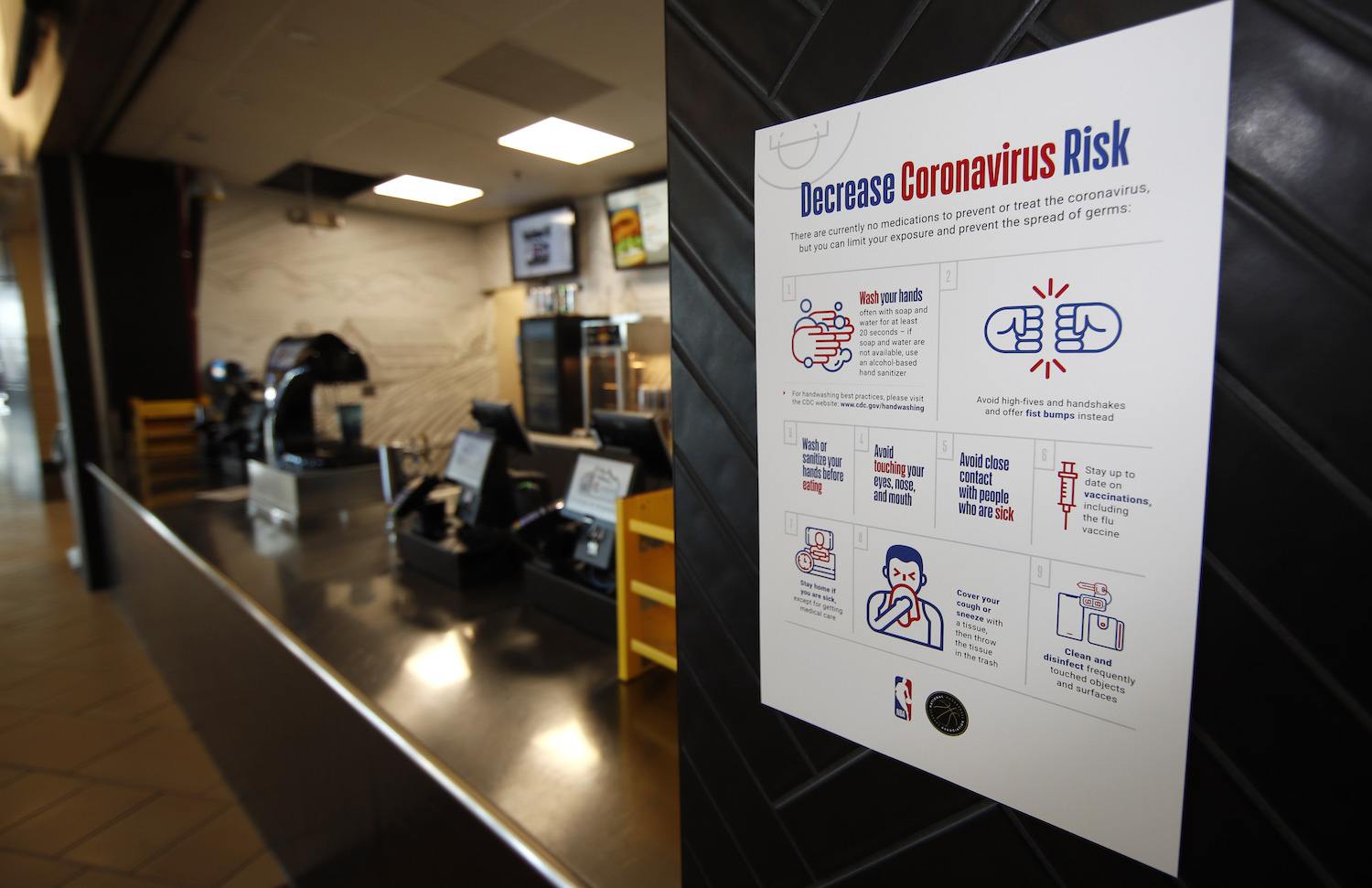
Many restaurant owners are relying on intuition and common sense to minimize the risk to their employees and customers.
To further complicate matters, recommendations from local health departments have been inconsistent and slow to roll out. On Wednesday, the Los Angeles County Department of Public Health announced it had begun recommending that restaurants with self-service buffets hire servers to minimize the risk of spreading germs through serving utensils. In Jersey City, New Jersey, restaurants are being asked to take attendance at the door in case they need to contact customers to alert them of exposure. Seattle and surrounding King County on Wednesday advised restaurants to screen staff and contractors and re-assign any high-risk employees to duties that do not involve public contact.
In the absence of an official pandemic playbook, many restaurant owners are relying on intuition and common sense to minimize the risk to their employees and customers. In Seattle, Dick’s Drive-In restaurant—a classic fast food joint with no dining room—has asked that customers pay with credit or debit cards instead of cash at the register. Jasmine Donovan, president and CFO of the seven-restaurant chain, says the policy grew from a concern that employees might inadvertently transmit germs from one customer’s cash payment to the paper wrappers containing the next customer’s burger or fries.
Wearing gloves wouldn’t fix the problem; instead, Donovan has begun requiring that employees sanitize their hands every time a customer pays with cash. If the restaurants run out of hand sanitizer—a legitimate concern, as Washington has reported shortages—she has a back-up plan. She’ll either require cash handlers to wash their hands with soap and water after every transaction, or she’ll employ a runner to handle food orders.
“The biggest risk you face in a restaurant is probably the customer next to you who sneezes when the wind is blowing your direction.”
Elsewhere in Seattle, which has been particularly hard-hit by the virus, restaurant Canlis has closed its dining room entirely, offering delivery and drive-through options in the interim.
At The Rose, a busy cafe in Venice, California, that serves between 7,000 and 10,000 people a week in normal times, chef and partner Jason Neroni says he’s been glued to his computer, checking for updates and watching catering cancellations roll in. “It’s like you’re at war right now, you’re kind of waiting for the next bomb to go off, you have your head down ready to duck,” he says.
Neroni says he put signs everywhere reminding people to wash their hands, and he began stocking the host station with hand sanitizer. (The hand sanitizer has since been moved to the back room for employees—it kept disappearing from the dining room.) He also purchased paper towels for the bathrooms because he heard that air dryers can spread blow germs around.
If an employee is infected or suspects they’ve contracted the virus, restaurants should work with their local health department to decide next steps.
Though Neroni’s decision to stock paper towels was largely based on hearsay, he was right to do so, says Chapman, the food safety specialist. He says paper towels add an element of friction to the hand-washing process, which can help remove pathogens. Airblade-style hand dryers perform a little better, but there’s been some indication that hand dryers suck in germs from toilets and spit them back out. Chapman cautions that he hasn’t studied the specific literature on hand dryers and viral spread.
Otherwise, Chapman says his advice to concerned restaurant owners is pretty simple: They should be cleaning their facilities with disinfectants that are specifically approved by the EPA to work on coronavirus. If an employee is infected or suspects they’ve contracted the virus, restaurants should work with their local health department to decide next steps. And hard surfaces and high-touch surfaces should be cleaned often. The University of California at Davis has published a fact sheet for food handlers as well.
The situation continues to unfold at a rapid pace. Schnaffer, the Rutgers professor, says one of the best things restaurants can do is pay their employees a fair wage and ensure sick leave pay for workers who may be experiencing symptoms. Otherwise, he says, most restaurants have a lot of experience in following strict sanitation protocols. “The biggest risk you face in a restaurant is probably the customer next to you who sneezes when the wind is blowing your direction,” he adds.
There is a bit of good news in all this: There’s not much evidence that Covid-19 can be transmitted through food itself, though of course we still don’t know much about this particular virus. “If we look at other coronaviruses, they’re not very stable within the pH of a stomach,” Chapman says. “I don’t see increased risk around transmission through food to people.”
